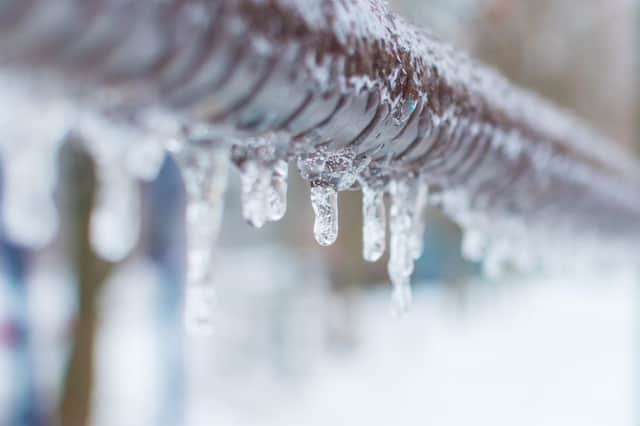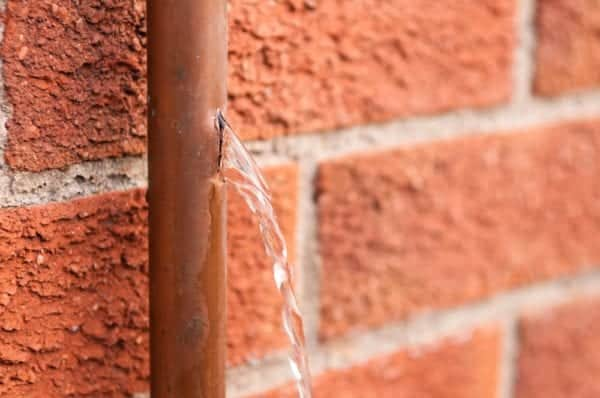Cold weather means frozen and burst pipes - here's how to fix them safely


With February's cold snap hanging over the UK, many of us will be waking up to find a household’s worst nightmare.
Frozen pipes.
Don’t panic! Frozen pipes are a surprisingly common happenstance, and as with most household issues, can be sorted with reasonably minimal fuss if you keep a calm head.
Here is everything you need to know.
Advertisement
Hide AdAdvertisement
Hide AdHow do I safely thaw a pipe?
If you suspect a pipe has frozen, turn off the stop valve immediately and open all cold taps to drain the system.
You should never turn on the hot taps in this situation, as if you have a hot water cylinder it may collapse if the pipes leading to it are frozen. Call a licensed plumber if you are in any doubt about what to do.
Once that’s done, you’re going to want to locate the source of the problem.
Check all exposed pipes – that is, any pipes in unheated areas of the property, and especially outside – for any leaks or bursts. If you’re confident your pipes haven’t ruptured, you can move on to thawing them.
Advertisement
Hide AdAdvertisement
Hide AdNever attempt to thaw out frozen pipes by switching on your immersion heater or central heating boiler, never apply a direct flame.
Instead, gently heat any frozen sections with a heated cloth wrapped around the pipe, though only if it is safe to do so.
A hot water bottle wrapped in a tea towel placed next to frozen pipes can also help speed up the thawing process.
What if a pipe has burst?
The only thing worse that a frozen pipe is a frozen pipe that has also burst.
Advertisement
Hide AdAdvertisement
Hide AdAs water freezes it expands, meaning an amount of water that would readily glide through your plumbing on a warm day becomes a solid mass of ice that will have your pipes bursting at the seams.
Thankfully, it usually means water won’t be leaking anywhere while the pipes remain frozen, but you’ll want to turn your water off at the stop valve as quickly as possible to minimise damage and water loss when they do eventually thaw.
Once the water is off, switch off your immersion heater and central heating boiler, then open all hot and cold taps to drain them of any remaining water.
You should also switch off your electricity supply at the mains if there’s a chance that water could come into contact with electrical wiring or fittings.
Advertisement
Hide AdAdvertisement
Hide AdWhere is my stop valve?


If you’re unsure of the location of your stop valve, it’ll be found wherever the mains supply enters your house, and common locations for this include under a sink, in a garage or close to the hot water system.
Residents in flats and terraced or semi-detached homes may have a shared water supply.
Again, the stop valve is normally located where the water supply enters the building, you’ll just need a little communication with your neighbours.
Can I fix a burst pipe myself?
Temporary DIY fixes to burst pipes are possible in a pinch, but for the best results (and for results which are far less likely to cause you headaches in the future), you’ll want to track down a plumber.
Advertisement
Hide AdAdvertisement
Hide AdAny temporary repair needs to be replaced as soon as possible by a permanent repair, and it's recommend this be carried out by a licensed plumber.
Once your pipes are repaired it’s important to remember to make sure your hot water system is refilled before you relight your boiler or switch on the immersion heater.
How can I stop my pipes freezing?
Of course, frozen pipes wouldn’t be a problem if they never froze over in the first place. So what kind of preventative measures can you put in place to stop the same happening when next winter rolls around?
One of the quickest fixes you can put into action is to ‘lag’ any vulnerable pipes on your property – this means wrapping them in foam insulation to protect them from the cold weather.
Advertisement
Hide AdAdvertisement
Hide AdCheck for pipes, taps, cisterns, tanks, and water meters in unheated areas that might be exposed to the cold, and when you’ve found them, cut a piece of lagging to size and clip it on.
Cable ties will help keep it secure.
The added bonus of lagging is that not only will it reduce the chances of your pipes freezing in cold weather, it will help insulate your hot water system and could save you money on bills.
A version of this article originally appeared on our sister title, The Scotsman